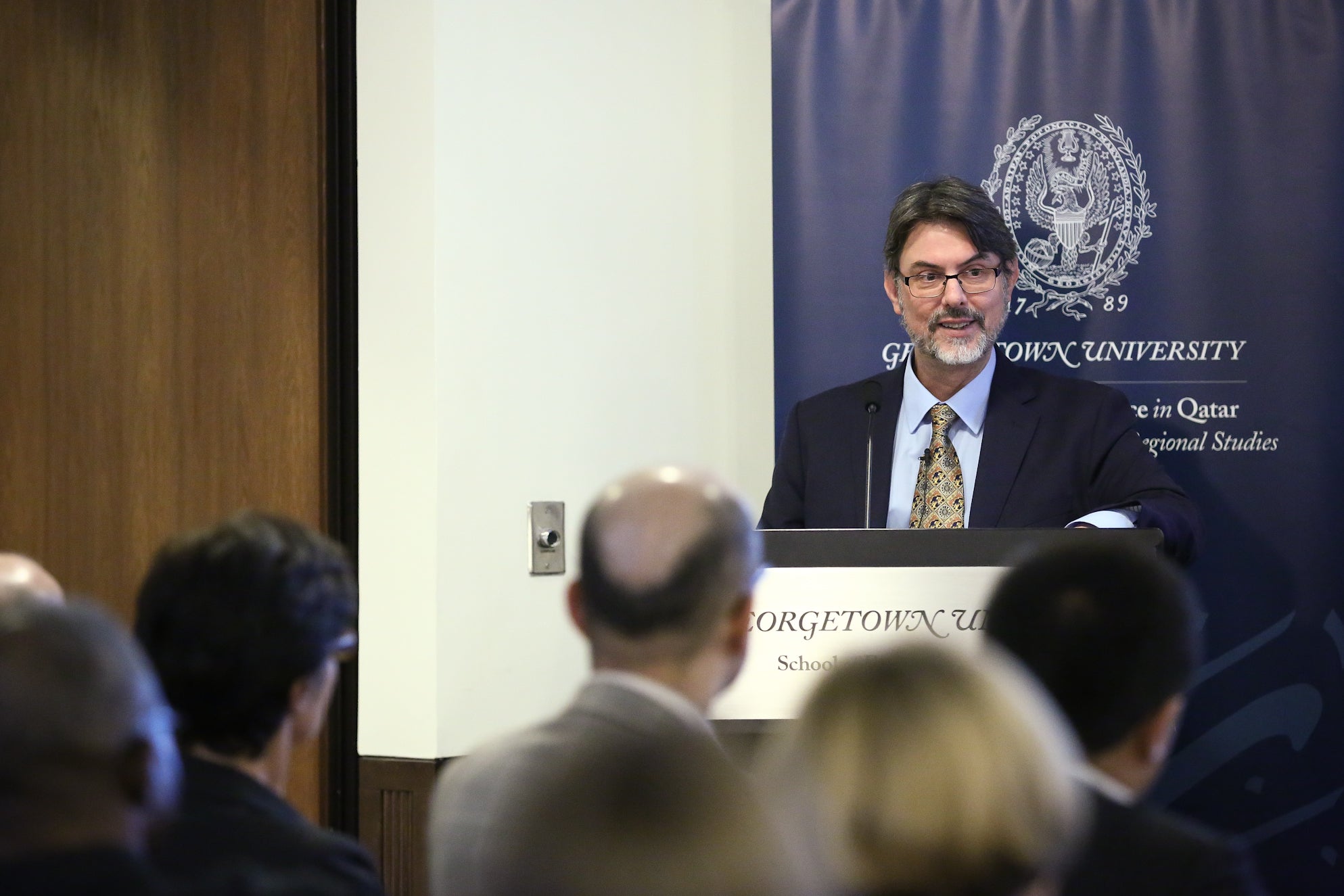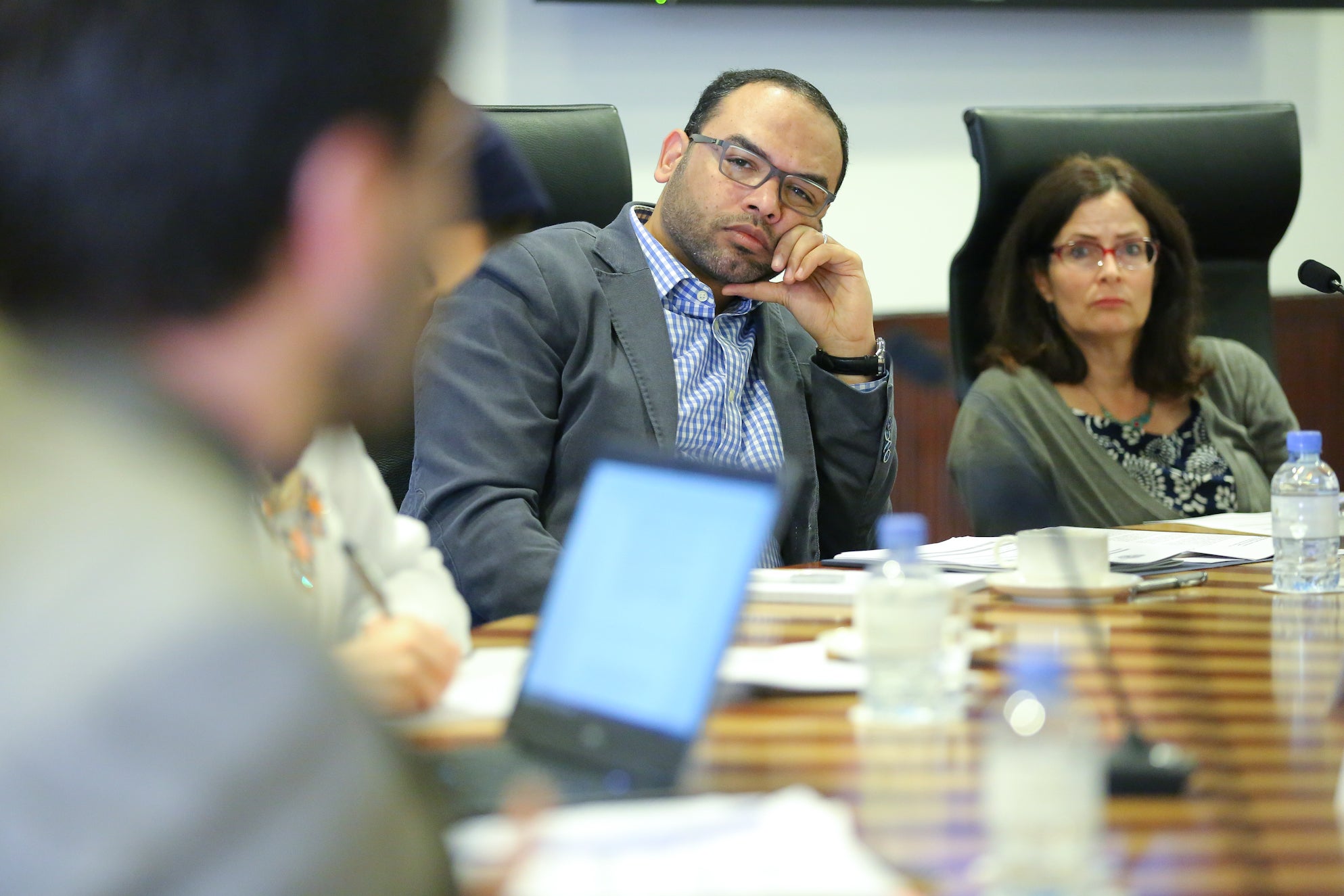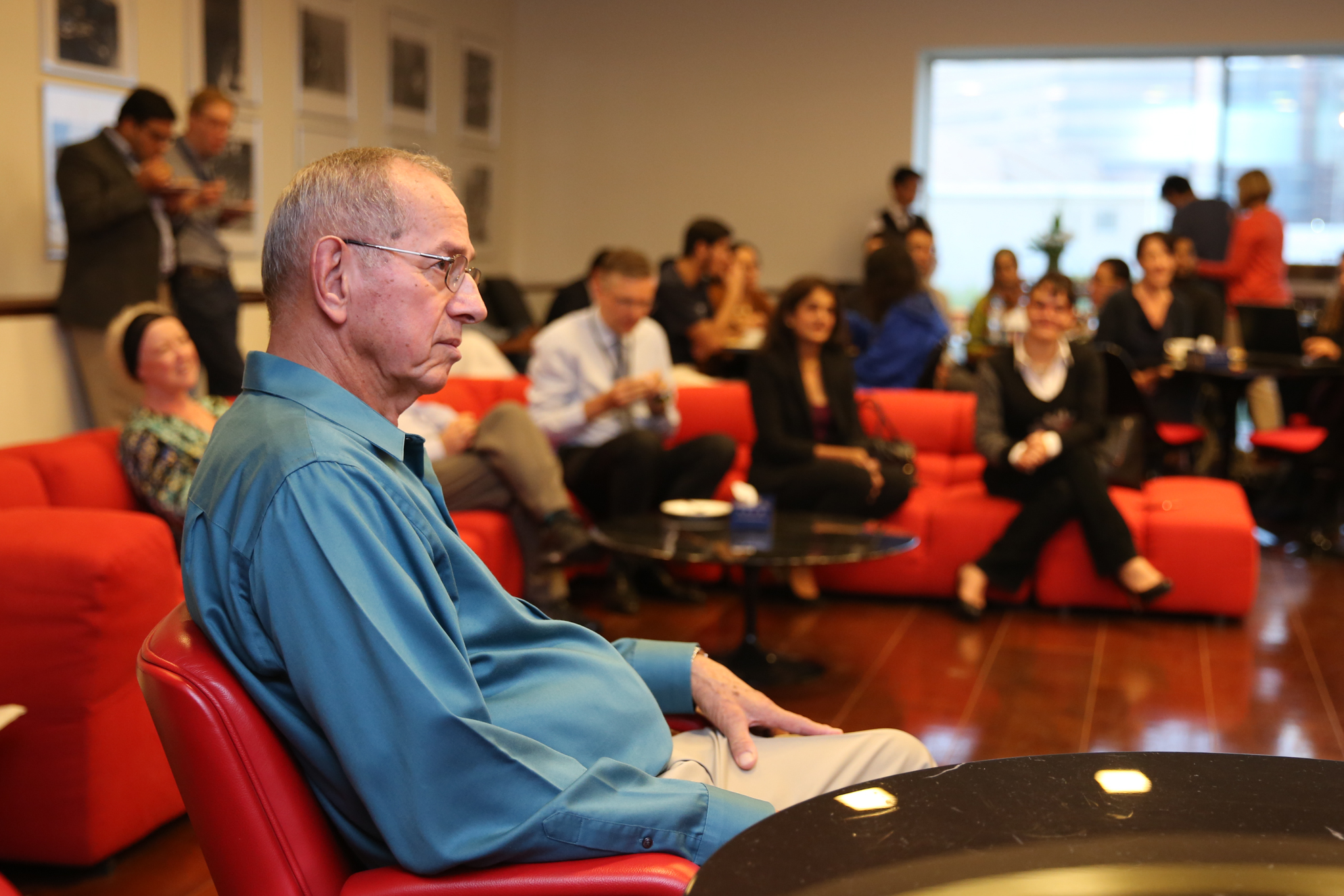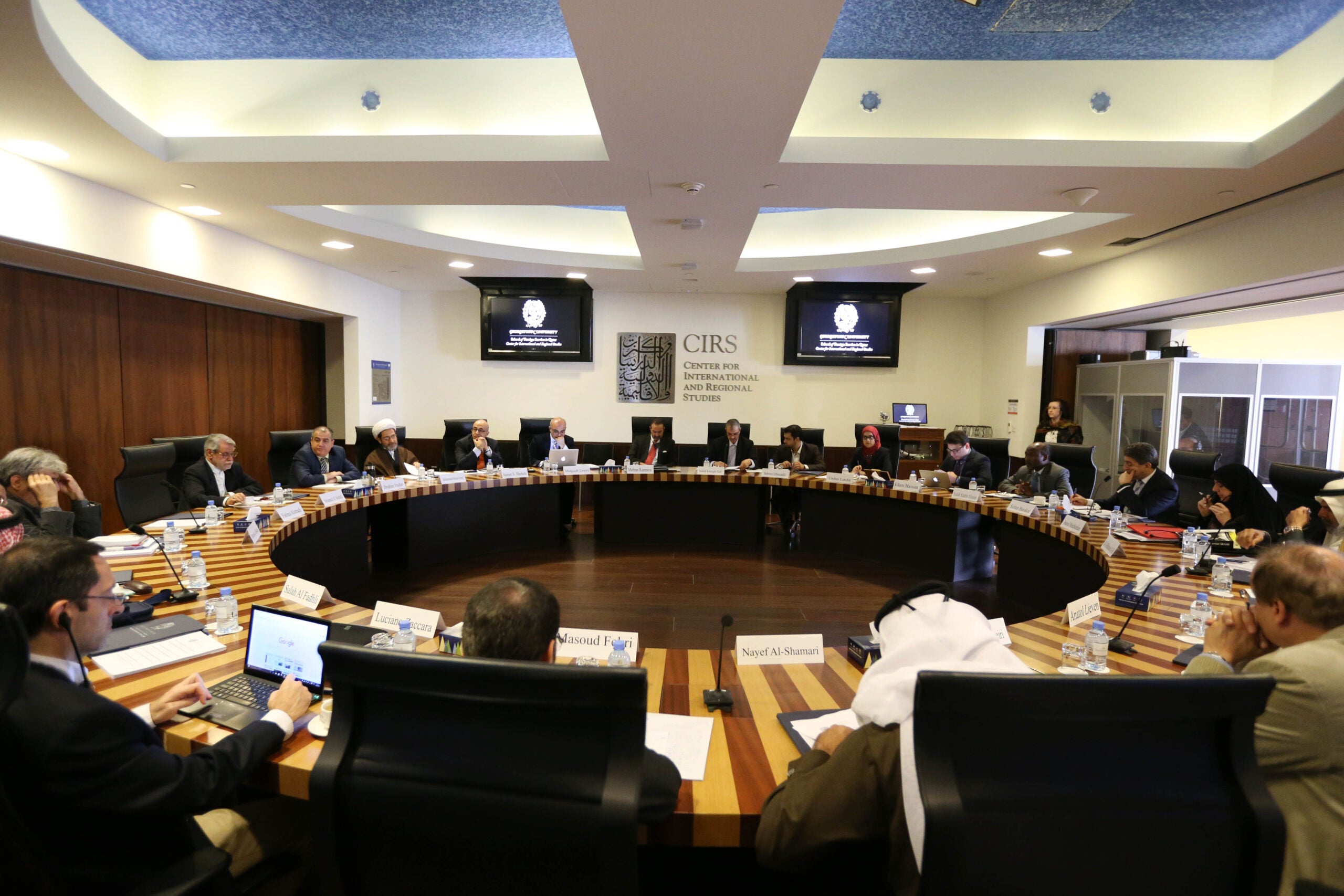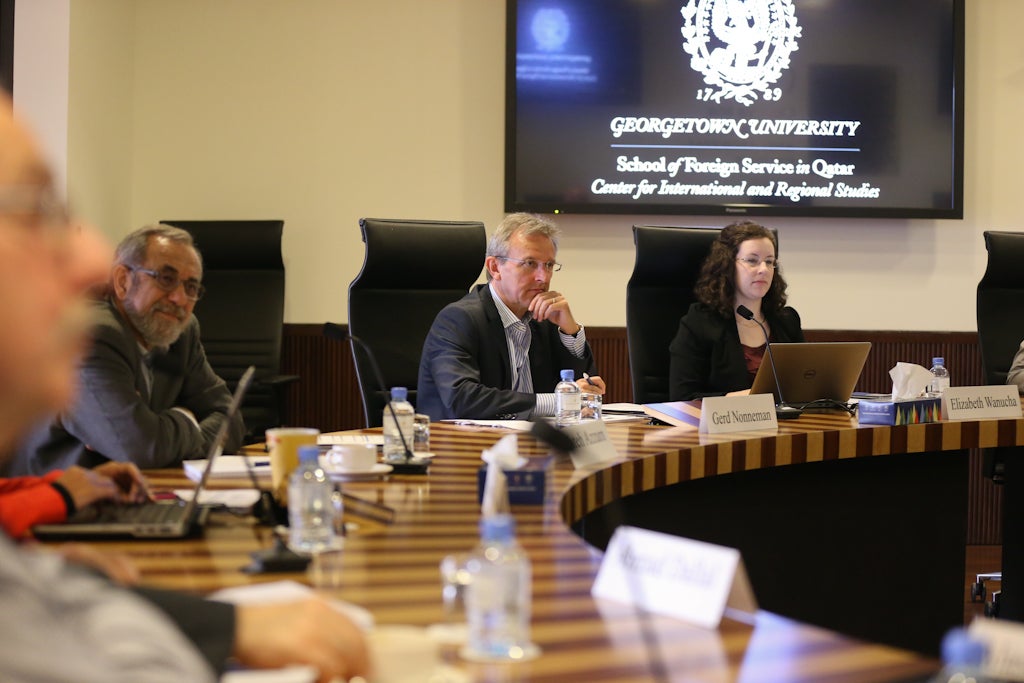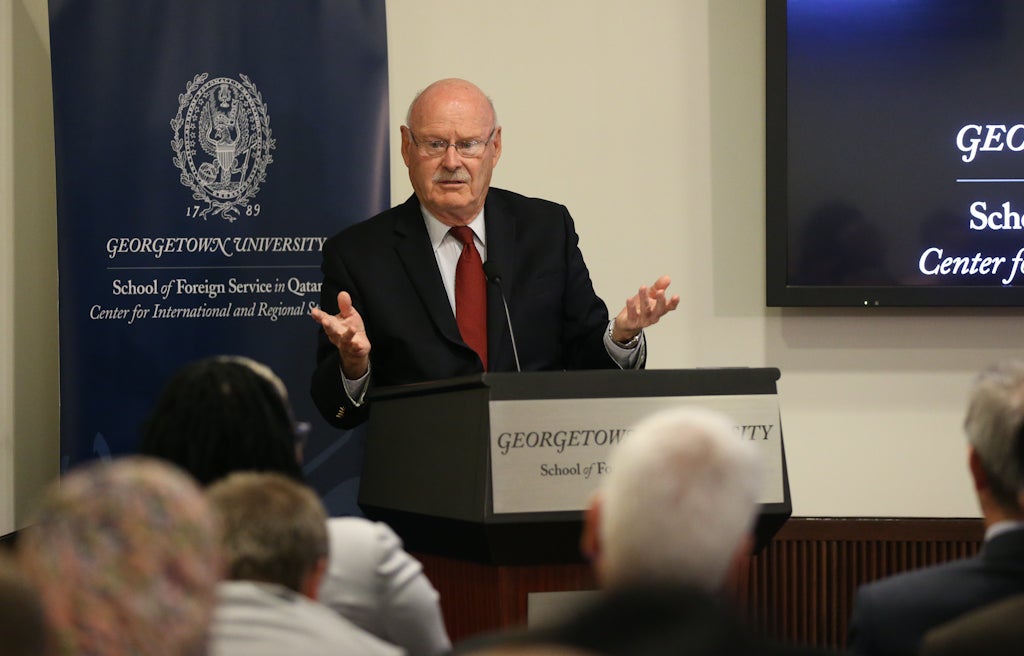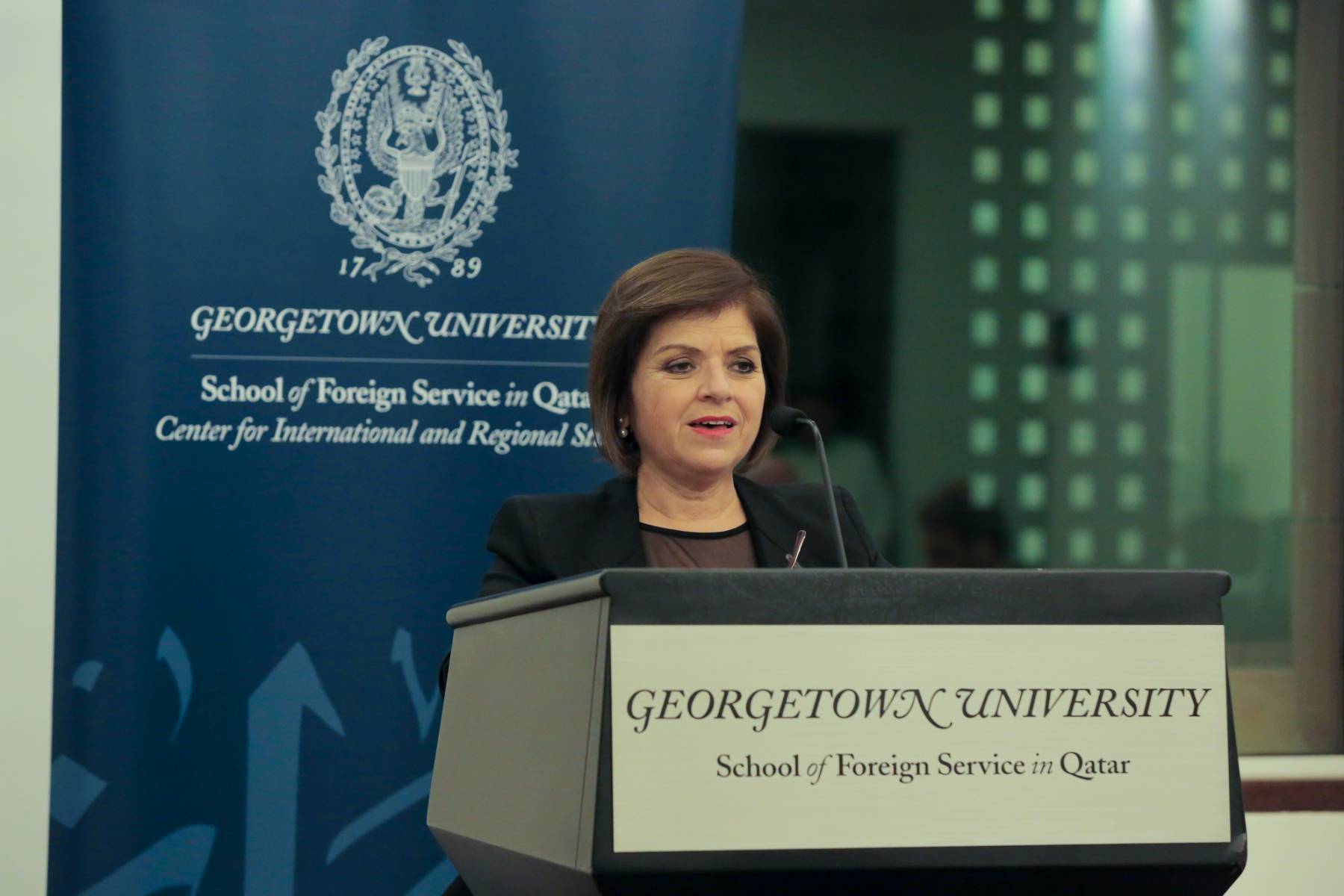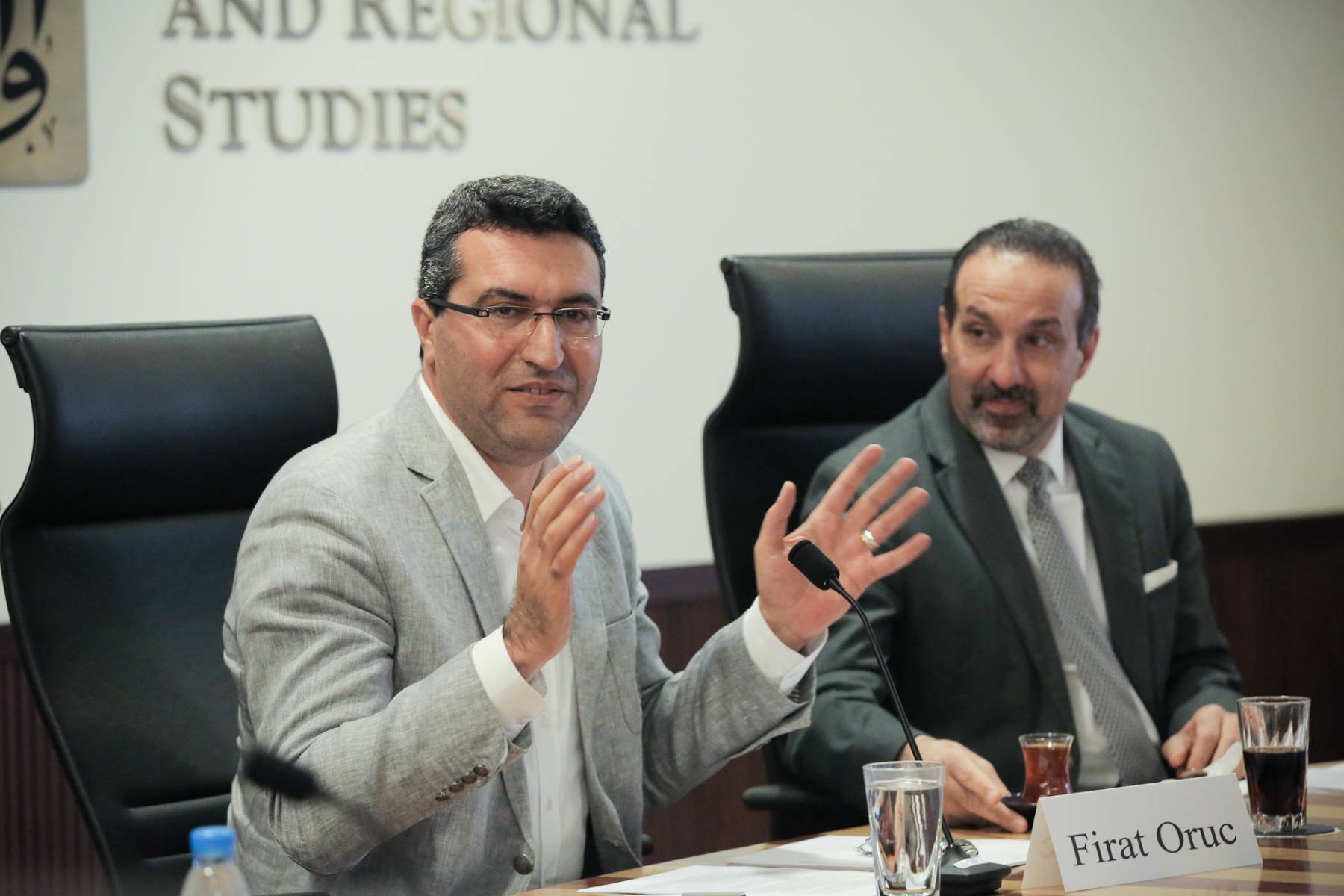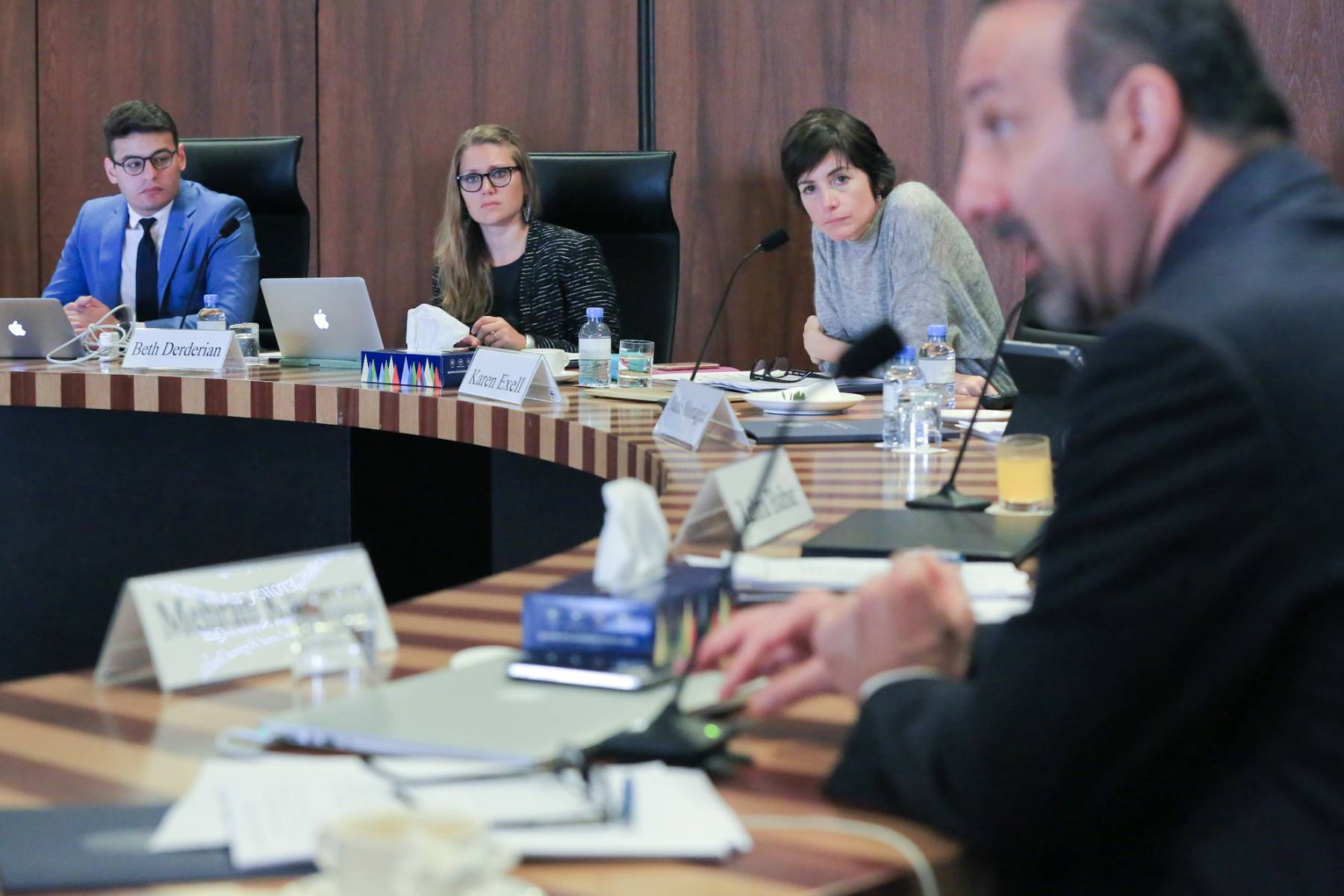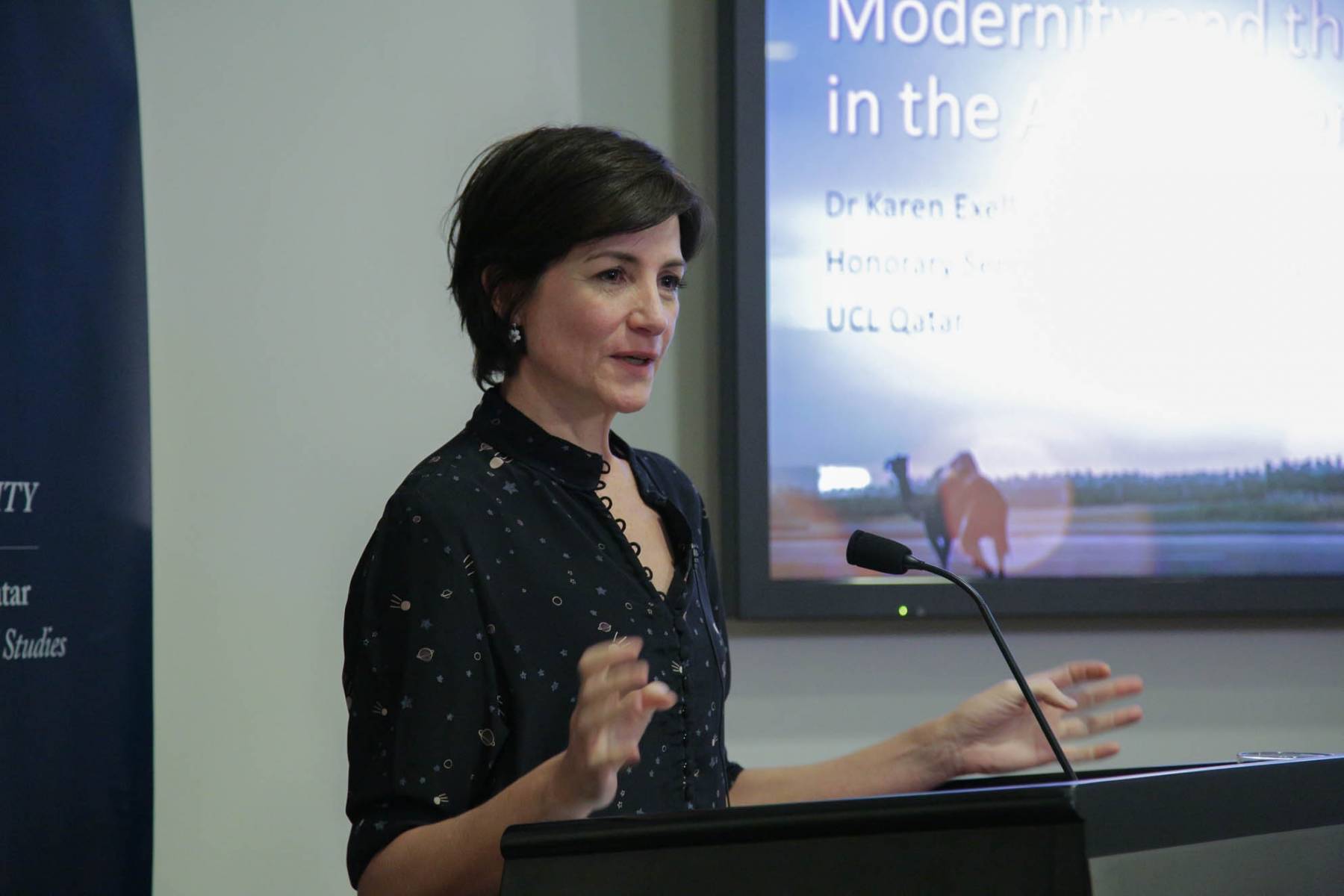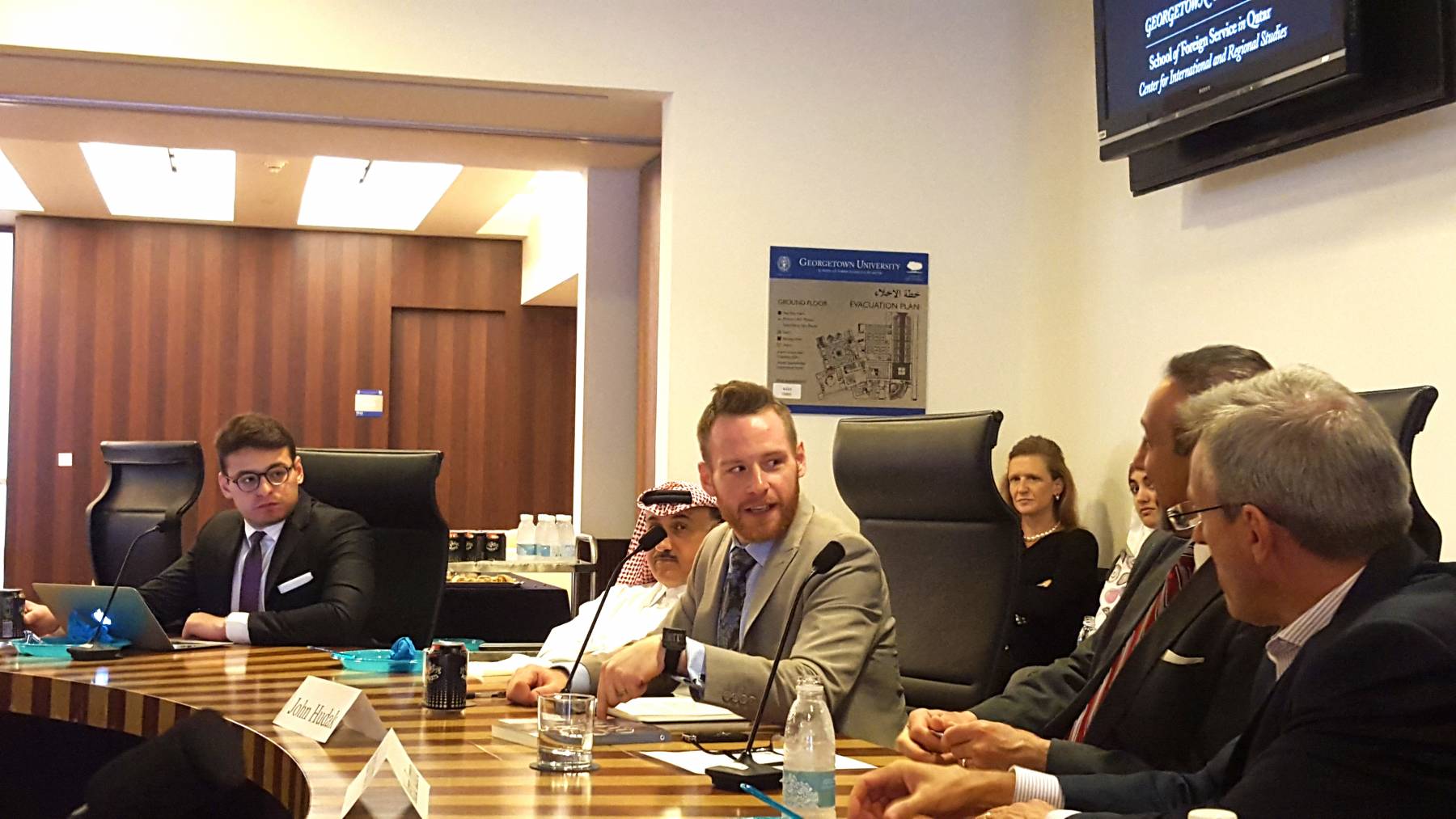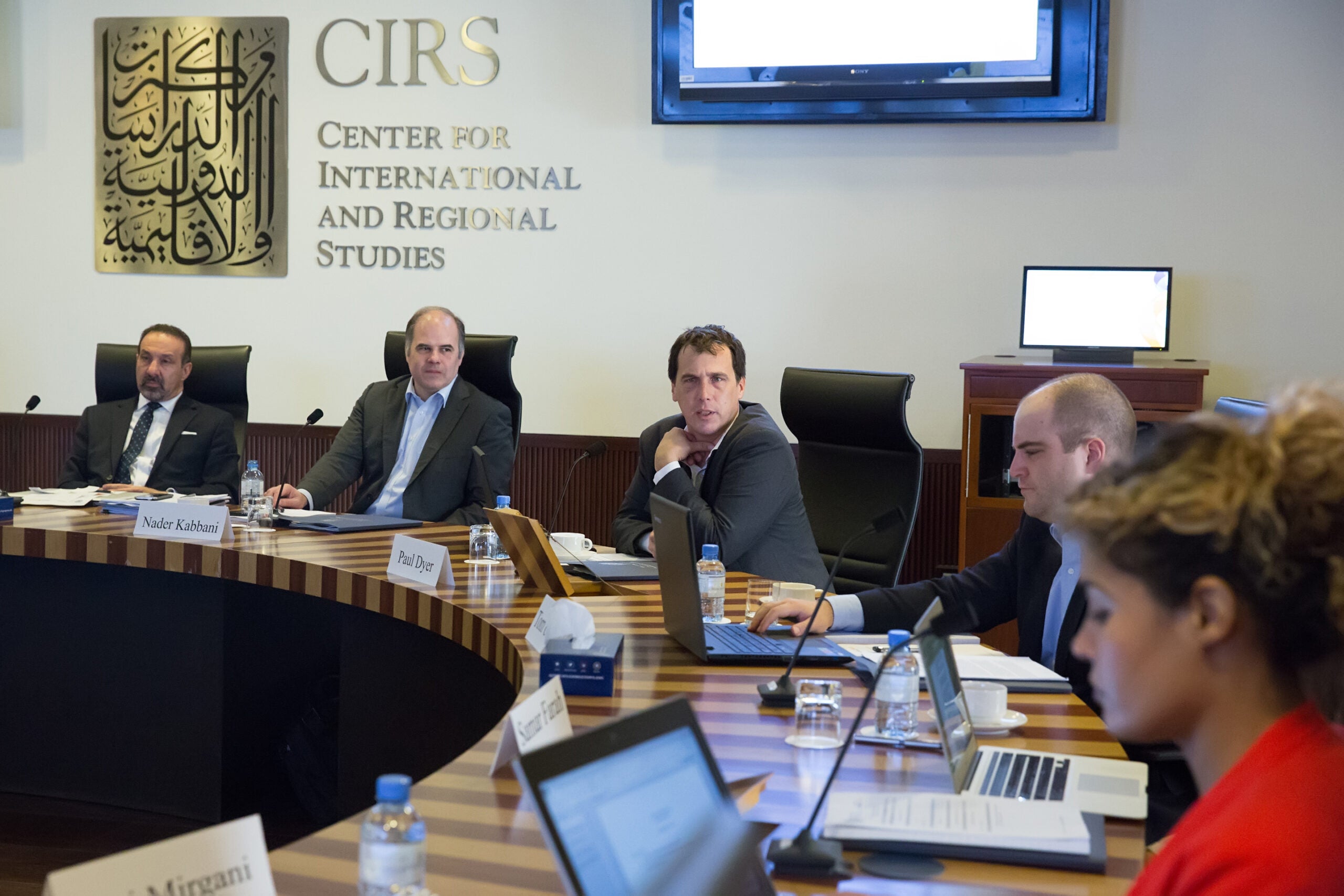
Youth in the Middle East Working Group Meeting II
On November 8–9, 2015, the Center of International and Regional Studies (CIRS), in collaboration with Silatech, hosted the second working group meeting as part of their research project on “Youth in the Middle East.” Eight distinguished scholars were invited to provide critical feedback and remarks on the draft papers, submitted as part of this project,…
